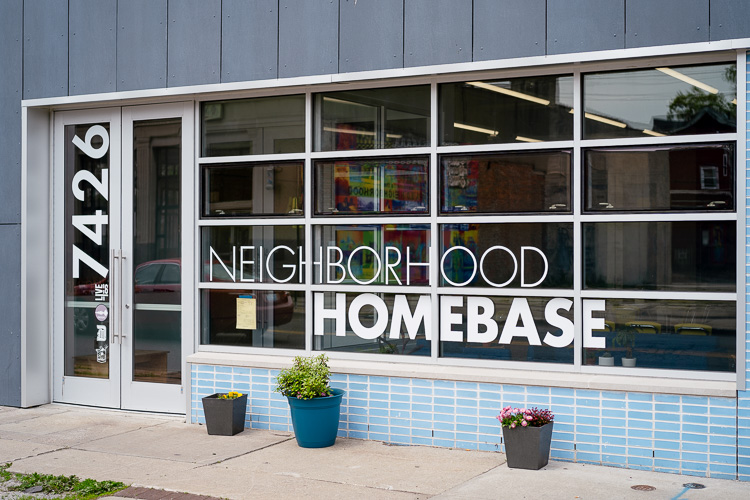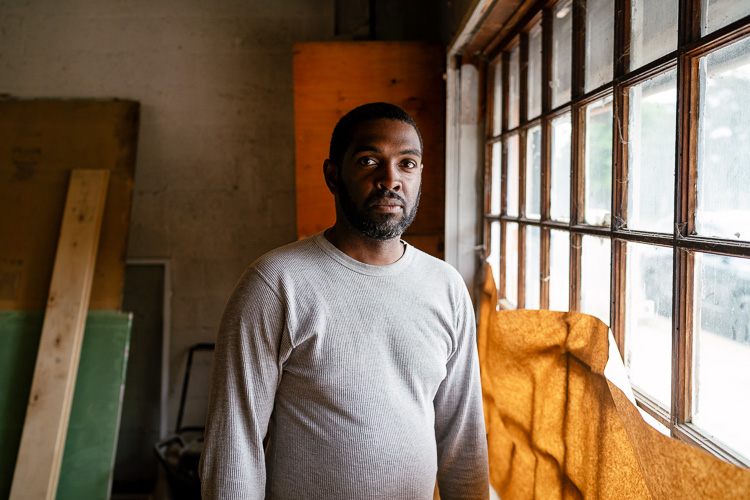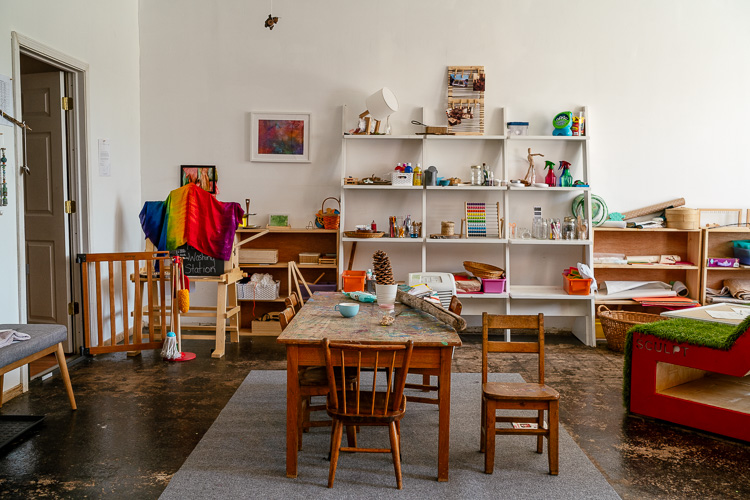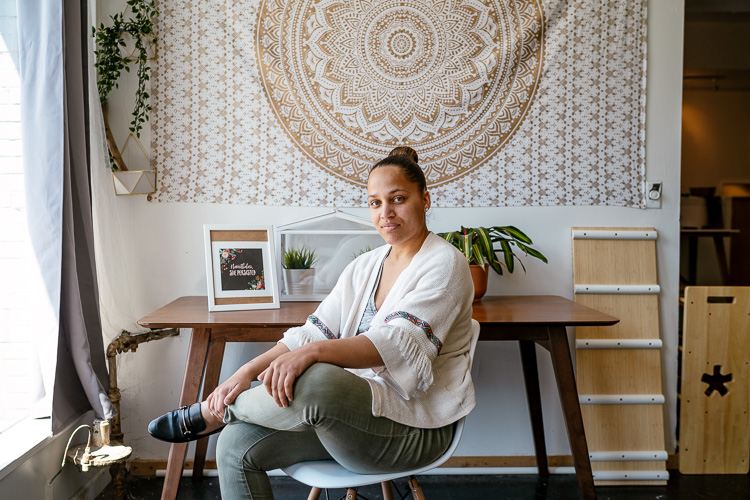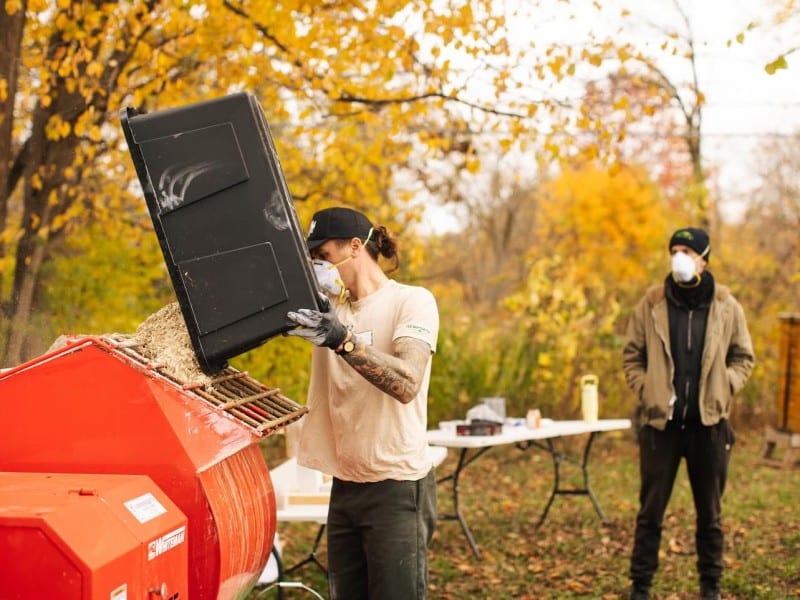These 3 Detroit spaces are helping transform a strip of McNichols into a community hub
New community spaces have taken hold on the McNichols corridor in Fitzgerald and Bagley, including Neighborhood HomeBase, Detroit Parent Collective, and The Raw Space.
LaQeisha William is quite familiar with the strip of West McNichols Road running by Marygrove College and the University of Detroit Mercy. As a longtime resident of the area, it’s part of the backdrop of her everyday life.
Although there are churches and commercial establishments along the corridor, for a long time they’ve been peppered in between a bunch of shuttered and abandoned buildings. Lately, though, this blight has begun to recede a little; new development has taken hold on the strip, bringing additions like the Detroit Sip coffeehouse and the restaurant Simply Breakfast to the area, as well as several other new community meeting spots. It’s a change William is delighted to see.
“I’ve been living here for 15 years, and it’s always been so down and bleak,” she says. “And now that they’ve opened more activities and centers. I love it. It’s brightened up the neighborhood.”
Neighborhood HomeBase
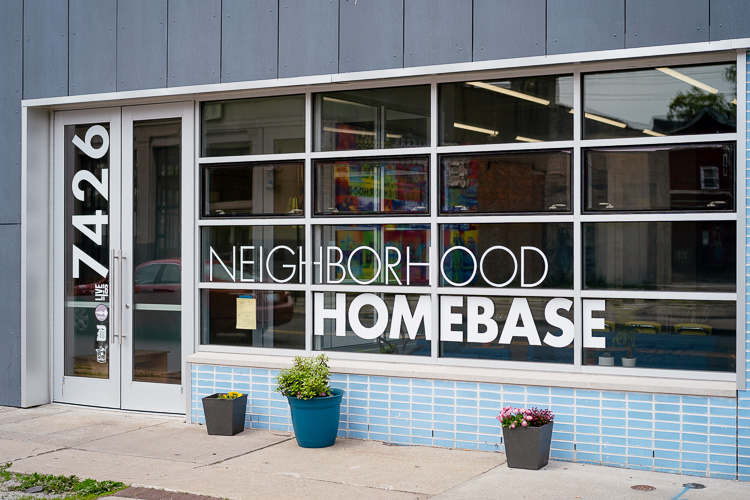
William is especially excited about the new community center Neighborhood HomeBase, which opened with much fanfare last month on April 25. In addition to serving as a spot for community members to meet, the facility will serve as a headquarters for the Live6 Alliance nonprofit and the Detroit Collaborative Design Center, a unit of U-D Mercy’s School of Architecture, and offer space for representatives from the city planning department to meet with local residents and business owners.
William feels the new spot will be a great resource for her family.
“I see my children visiting for the purposes of studying and just relaxing,” she says. “It’s just a different environment, and it’s awesome.”
The opening of HomeBase is tied to a larger endeavor called the Fitzgerald Revitalization Project, a City of Detroit-led initiative to repurpose vacant property in a quarter-square-mile project area of Detroit’s Fitzgerald neighborhood bordered by McNichols Road, Livernois Avenue, Puritan Street, and Greenlawn Avenue. Supported by partners like the Kresge Foundation, the Fitz Forward development team and a Reimagining the Civic Commons grant, the project has also involved establishing a new park and greenway and the rehabbing of 115 vacant homes in the project footprint.
Located in a former tuxedo shop on McNichols between San Juan and Prairie Streets, HomeBase provides neighborhood residents and the staff headquartered there with 4,000 square feet of flexible office and meeting space. The Detroit Collaborative Design Center (DCDC) drew up the plans for the facility with input from local residents and future HomeBase tenants.
“We had a vision of this place being seen as a place where people feel welcome and collaborate,” DCDC’s Executive Director Dan Pitera says.
To meet these goals, the DCDC team created a large open area space with three rotating walls that can be transformed into a series of smaller rooms if necessary.
“A block club can have a big meeting, and then they can break out into three smaller groups,” says Pitera. “And they can use the conference room as a fourth breakout room.”
In addition to meeting space, HomeBase will also feature a rotating art gallery, coworking desk space for businesses and nonprofits, and special tables with chess boards built into them for recreational purposes.
As for the décor, DCDC chose to honor the building’s history by restoring the former tuxedo store’s original tile flooring, deconstructing wood from the structure and turning it into furniture, and reusing tin roof panels from the building’s ceiling as design elements throughout the space.
But what about the larger purpose of the building? Mayor Mike Duggan sees HomeBase as fitting into his administration’s strategy of taking the redevelopment of the city to the neighborhoods.
“You have a number of outstanding nonprofits [doing this in Fitzgerald], U-D Mercy has been actively engaged, and the city planning department has been actively engaged,” he says. “Now there’s a central place where all of those groups can work together, and residents from the neighborhood can drop in, see the plans, and get their own opportunity to provide input.”
Beyond just serving as a spot for people to meet, though, Stephanie Harbin, president of the San Juan Block Club, hopes the new community center will prove to be an asset for folks who live in the neighborhood.
“My expectation for this community hub is that the residents will have liberty to use HomeBase and also to make resources available to them, if they need to use a computer, need some printing done, or we want to train some of our youth about computer learning or [teach them career skills],” she says. “I would like to make sure that it’s being utilized in diverse ways.”
Detroit Parent Collective
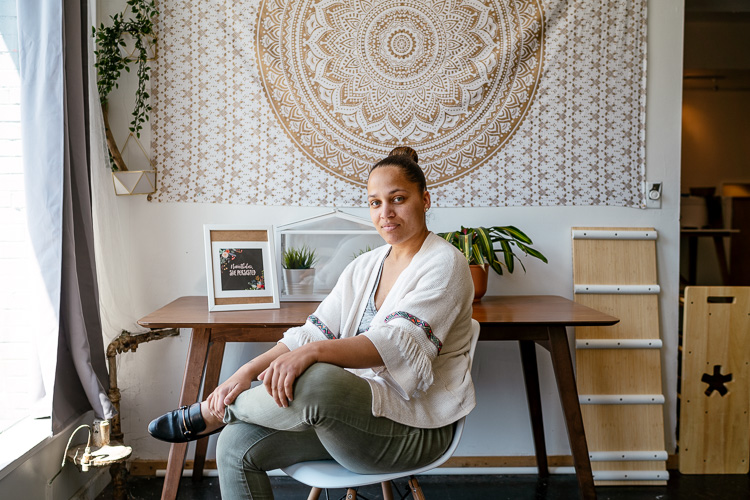
HomeBase is not the only space for people to meet and collaborate on McNichols these days. Located a few blocks west in Detroit’s Bagley neighborhood is Detroit Parent Collective (DPC). Temporarily closed for restructuring, it’s dedicated to providing parents with flexible job situations an environment where they can earn their livelihoods while being close to their children.
“We’re a coworking space that offers on-site childcare to families as well a cooperative preschool,” founder Krista McClure says.
McClure, who has experience working in both the educational and business development fields, opened DPC in 2017. The idea for the space evolved from a series of discussions with nonprofits about what an inclusive family-oriented workspace might look like. Failing to find a partner organization that shared her vision, she eventually purchased a facility and launched her business concept on her own.
Situated in a brick-and-mortar storefront across the street from Marygrove College, the DPC building is filled with plants and the scent of essential oils, elements aimed at creating a calm environment for both parents and their children.
Members of the coworking space get access to WiFi, coffee or tea, and on-site childcare for potty-trained children from 6 weeks to 30 months old. The Free Thinker School that DPC operates is inspired by Montessori, Waldorf, and Reggio Emilia educational philosophies and open to children from 30 months to 6 years old.
DPC also sponsors regular conversation-oriented potlucks on topics related to overcoming barriers based on socioeconomic class, race, ethnicity, religion, and sexual identity. These free discussions typically take place once a month, and participants are asked to bring a vegetarian dish with them.
Although DPC has been financially successful and employees are paid a living wage, the organization made the tough decision to temporarily close its doors this March to figure out how to better realign its business practices with its mission.
“We realized that we were serving a lot of affluent families in the City of Detroit,” says McClure, “So as the founder, I had to reflect, because I wanted to able to find a way in which we were able to be true to my mission of being inclusive to the community in which we reside, Bagley.”
With this in mind, DPC is working to get its preschool licensed by the State of Michigan and re-evaluating how its prices and hours of operation can better serve residents in the immediate community. The coworking space expects to reopen in June.
The Raw Space
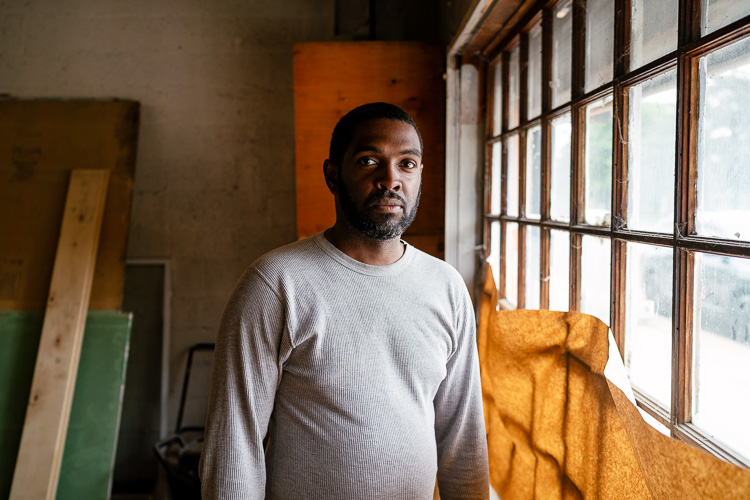
It looks like McNichols is about to get a little more lively as well. Local folks interested in putting on an event will soon be able to do so at The Raw Space, which will be run by Eric Cook, a Detroit resident who grew up in the area.
“It’s really just a place where commerce and community can come together,” he says. “I’ve had a lot of artists approach me. We’ll also do pop-up shops, spoken word, and maybe small graduation or birthday parties.”
Cook, a former teacher who now works in automotive logistics, noticed the building where The Raw Space is now being built hadn’t been used in many years, so he came to an arrangement with the owner to fix it up with the goal of renting it out for events.
As the name suggests, The Raw Space is a minimally furnished facility; it’s about 1,100 square feet without any permanent fixtures other than a bathroom, small kitchen, and utility room. There’s also a backyard area that’s a little larger than the indoor space that will be available when the weather permits.
Cook hopes to have a soft opening for The Raw Space this month or next, and he’s hopeful it will fill a need for local artists and entrepreneurs.
“There’s a couple of other spaces in the area, but not really open for commerce or a continuous flow of business,” says Cook. “I want to bring that to this side of McNichols but with a little more foot traffic and a little more exposure.”
This article is part of a series where we revisit stories from our On the Ground installment and explore new ones in the Live6 area. It is supported by the Kresge Foundation.
Photos by Nick Hagen.
